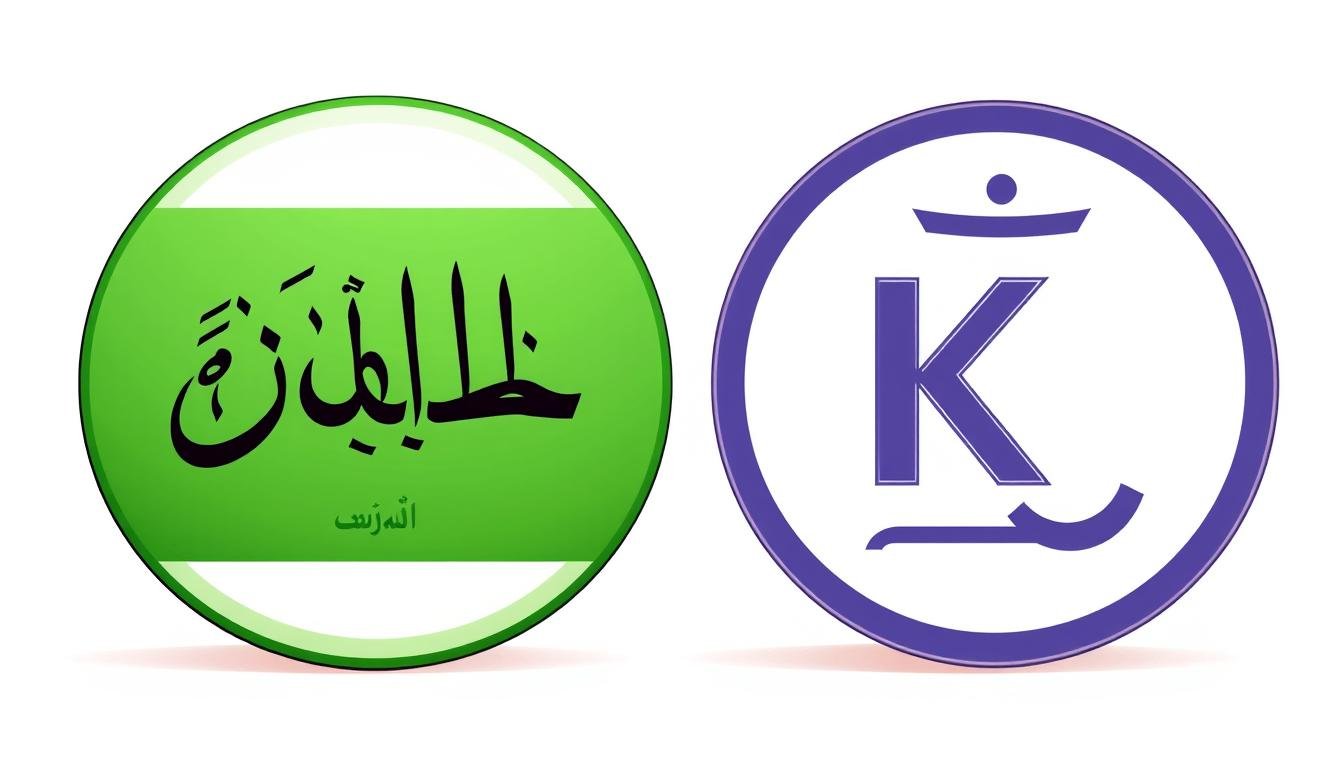I’ve stood in grocery store aisles, staring at labels. I tried to understand symbols I didn’t get. For Muslims in America, the question can a muslim eat kosher meat is real. It’s part of our daily lives.
When halal options are hard to find, the halal vs kosher debate is real. Growing up, my family wondered if the OU symbol was okay. We asked if it met our dietary needs.
Today, over 400,000 products have the OU’s kosher mark. But only 23,000 have IFANCA’s halal seal. This shows a big gap.
6% of kosher sales in the U.S. are from Muslims looking for muslim eating kosher options. But what does this mean for us? It’s not just about symbols. It’s about faith, trust, and the stories behind the labels.
As we explore this, let’s ask: Can old laws fit in modern markets without losing their meaning? And who decides what’s truly okay?
Understanding Islamic Dietary Laws (Halal)
What is halal? It means every meal follows Islamic teachings. Islamic laws go beyond just what you can’t eat. They see eating as a way to worship.
The Quran says, “Eat of that over which the name of Allah has been mentioned.” This rule guides how we slaughter animals and choose ingredients.
Core Principles of Halal Food in Islam
Halal isn’t just for meat. It includes all foods, even veggies. They must not have forbidden additives.
The bismillah recitation during slaughter is more than a tradition. It shows our respect for Allah’s power over life. This makes halal different from other ethics, and getting it right is key.
The Significance of Proper Animal Slaughter in Islamic Tradition
Zabiha slaughter is special. It uses a sharp blade and cuts the blood vessels quickly. Animals must be aware of their death.
This method cares for the animal and follows the Quran. Meat not slaughtered right is forbidden, even if the animal is okay. Today, we check these things through audits and visits to places where meat is made.
Prohibited Foods and Ingredients in Muslim Diet
Pork, blood, alcohol, and carrion are not allowed. But, processed foods can hide risks. Gelatin from pigs or enzymes from wrong sources are dangers.
In the U.S., over 10% of products have these hidden dangers. So, it’s important to check labels carefully for Muslims.
The Fundamentals of Kosher Dietary Laws
At the heart of Jewish dietary practices lie kosher meat rules shaped by millennia of tradition. These Jewish dietary laws extend beyond slaughter methods. They dictate which animals are okay, like cattle and poultry. They also require strict separation of meat and dairy in meals and kitchens.
The act of kosher slaughter, called shechita, is special. A trained shochet makes a swift, precise cut. This cut severs major blood vessels, ensuring minimal pain to the animal. This process is similar to Islamic dhabiha but has different ritual intent.

Certification bodies like the Orthodox Union and Star-K check production facilities closely. They make sure everything follows the rules. But, only about 4% of American Jews follow all kosher meat rules strictly. Many, though, observe parts of these traditions.
The ban on pork and shellfish is shared with Islam. But, the meat-dairy separation is unique to Judaism. This raises questions: how do these differences shape interfaith dietary choices?
Modern challenges, like the 1987 tuna certification debate, show even within Judaism, practices vary. For Muslims looking at kosher products, understanding these differences is key. It helps them navigate shared and different practices. The next sections will explore where these paths meet and where they don’t under divine guidance.
Can a Muslim Eat Kosher Meat? The Religious Perspective
Islamic teachings on food are about respect and practicality. The Quran (5:5) says, “The food of the People of the Book is lawful for you.” This verse is key in debates about is kosher meat halal. But, Muslim scholars on kosher face challenges in following ancient texts in today’s world.
“We assume kosher meat meets halal standards when slaughtered correctly,” says Imam Shamsi Ali of the Islamic Cultural Center of New York. “But Muslims must verify compliance with core principles.”
Islamic rules focus on how animals are slaughtered. Both traditions need a blessed slaughter. But, there are differences in how it’s done.
Hanafi scholars often say kosher meat is okay if it’s slaughtered right. Others look closely at things like what’s said over the animal. The American Halal Foundation (muslimculturehub.com) says islamic ruling on kosher food depends on a few things. These are no bad words said, blood drained well, and no machines used.
Today, there are big challenges. Only 17% of U.S. Jews follow kosher laws strictly. This makes it hard to trust certifications. Also, fights over kosher rules and who can say it make things unclear. For Muslims, making a choice means weighing tradition against today’s world to stay true to their faith.
Comparing Halal and Kosher Slaughter Methods
Looking into halal vs kosher slaughter shows we share values and have different ways. Both dhabiha and shechita aim for quick, painless slaughter. They use sharp knives to make sure the animal doesn’t feel pain.
Similarities in Animal Treatment and Blessing Requirements
Both traditions face the animal northward during slaughter. This is a shared practice with deep meaning. Kosher butchering methods use one blessing for many animals, but halal needs a blessing for each.
Both methods don’t allow stunning before slaughter. This ensures the animal is conscious during the cut. The goal is to bleed the animal quickly and correctly.
Key Differences in Slaughter Techniques
Halal slaughterers can be Muslim, Christian, or Jewish. Shechita, on the other hand, requires a trained shochet (Jewish butcher). The cut’s angle is different too.
Halal uses a horizontal cut, while shechita makes a V-shaped cut. Kosher law also doesn’t allow eating the sciatic nerve, which is not true for halal.
Blood Drainage Practices in Both Traditions
Both systems focus on removing all blood. Halal allows machines to drain blood, while kosher does it by hand. This shows respect for life and tradition.
Modern debates often miss these ancient rules. They balance respect and practicality in a unique way.
Practical Considerations for Muslims in the United States
Urban areas like New York now have better halal food availability. This makes it easier for Muslims to follow their dietary choices in America. In the past, many had to settle for kosher food because halal was hard to find.
Today, cities have many halal markets and restaurants. But, smaller communities face bigger challenges.
“There’s always halal right nearby,” says one New York resident, reflecting how metro areas now prioritize these needs. But rural regions struggle, forcing families to travel or freeze meat.
Apps like Halal Near Me and Zabihah help find certified vendors. Community networks also share trusted butchers. For those without access, Islamic scholars say it’s okay to use kosher in emergencies.
But, be careful: some kosher items might have haram ingredients.
Certification labels are important. Groups like the Islamic Services Council (ISC) check products for hidden additives. Even in cities, it’s important to watch out for cross-contamination.
Urban growth brings hope, and innovation keeps coming. Now, there are plant-based halal products. These options meet both cultural and modern health needs. For millions, these choices show resilience—mixing tradition with modern life.
Cultural and Historical Intersections of Muslim and Jewish Dietary Practices
Looking into Abrahamic food traditions shows how halal and kosher share common values. Both focus on animal care and keeping things pure. They follow ancient texts that guide what to eat as a sign of faith.

Shared Abrahamic Roots of Dietary Restrictions
Islamic and Jewish food laws come from Abraham’s promise. Rules against pork and blood are in both the Torah and Quran. These religious food practices show a shared belief in honoring divine commands.
The Prophet Muhammad once said, “The believer eats with one portion, while the disbeliever eats with seven.” This idea is also found in Jewish teachings on eating in moderation.
“Kosher, halal is the same thing.”
Vendor Mohamed Shahadat’s words show how people today see these systems as connected. In medieval Andalusia, Muslims and Jews worked together on food laws. They made sure their markets followed both Jewish-Muslim dietary history.
Even now, American Muslim communities often buy kosher meat when they can’t find halal. This shows how these religious food practices can work together.
Historical Examples of Muslims Consuming Kosher Food
In 19th-century New York, Muslim immigrants went to kosher butchers because there were no halal ones. This tradition continues in cities like Chicago. Syrian refugees there buy kosher meat because there’s no halal meat available.
These traditions are bridges between different communities. With the rise of eco-kashrut and green halal, both faiths now focus on buying food ethically. This shows how old laws can adapt to today’s needs without losing their spiritual meaning.
Modern Certifications and How to Identify Truly Kosher Products
When we look at supermarket shelves, kosher certification symbols like the OU, OK, or Star-K show if food follows Jewish dietary laws. But for Muslims, these kosher food labels need more checking because of kosher-halal ingredient concerns. Today, with many certifications, it’s important to be clear.
“Back in the 1950s, most American Orthodox Jews read food labels to determine kosher status. Today, symbols dominate—but halal consumers must go further.” Champion-Bio notes this shift highlights certification’s evolution.
First, learn which symbols are most trustworthy. The Orthodox Union’s OU-K and Star-K logos mean strict checks. But, even kosher products might have alcohol from grapes or dates, which Muslims can’t eat.
Vanilla extract often uses ethyl alcohol, a big no for Muslims. Some kosher foods also have gelatin from pork or animals not slaughtered the right way.
Looking at ingredients is key. Things like enzymes or flavorings might come from non-halal places. The Islamic Food and Nutrition Council of America (IFANCA) tells us: kosher doesn’t cover alcohol residues or some processing aids. Kosher allows a little alcohol, but halal doesn’t.
So, even kosher foods need a close look at their ingredients. We all want food that respects both divine rules and community wisdom.
Situations Where Kosher May Be the Only Option
Millions of Muslims in the U.S. face a big challenge. They can’t find many halal-certified products. There are only 23,000 halal items in America, but over 400,000 kosher items worldwide.
Travelers often find kosher meals in airports or hotels instead of halal. Universities and hospitals also offer kosher meals but not halal. This creates big problems for students and patients.
In Islamic law, there’s a rule called necessity (darura). It allows for exceptions when no halal choice is available. For example, in emergencies or far-off places, kosher meat might be okay.
But, I always say to choose halal first. The American Halal Foundation says kosher products aren’t automatically halal. They need their own certification, even if they’re slaughtered the same way.
Knowing when to choose kosher and when to ask scholars is key. This helps Muslims make good food choices. As the halal market grows to $2.8 trillion by 2030, more certified options will be available. Until then, understanding these rules is important.
FAQ
What does halal mean in Islamic dietary laws?
Are all kosher foods permissible for Muslims?
What is the significance of the shechita method in kosher dietary laws?
What makes kosher meat permissible for Muslims?
Are there differences in animal treatment between halal and kosher slaughter?
What challenges do Muslims face when looking for halal food in non-Muslim countries?
How can I identify trustworthy kosher certifications?
What historical examples are there of Muslims consuming kosher food?
How does necessity (darura) apply to the consumption of kosher food for Muslims?

Embracing Faith, One Insight at a Time!
The teachings of the Quran have always guided my path. With a deep passion for Islamic knowledge, I strive to blend the wisdom of tradition with the relevance of today, making the timeless messages of Islam accessible and meaningful for everyone.
Muslim Culture Hub is my platform to share historical insights and thought-provoking articles, exploring both well-known and lesser-discussed aspects of Islamic culture and beliefs. My mission is to create an inclusive online space where everyone can learn, strengthen their faith, and connect with the profound message of Islam.
Join the journey!
May peace be upon you.








